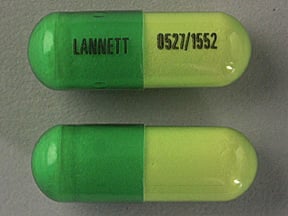
Butalbital-aspirin-caffeine Coupons & Savings Card – Discount Prices from $16.56
This medication is a combination treatment specifically formulated for managing tension headaches in adults. It comprises three active ingredients: butalbital, aspirin, and caffeine. Butalbital, a barbiturate, acts as a sedative, promoting relaxation and alleviating anxiety. Aspirin, a nonsteroidal anti-inflammatory drug (NSAID), helps to reduce headache pain, while caffeine enhances the effectiveness of aspirin. This medication is typically taken orally every four hours. Despite the discontinuation of the brand name Fiorinal, equivalent generic versions remain available. Common side effects include drowsiness and dizziness. It's important to note that this medication is classified as a Schedule III controlled substance due to its potential for misuse and dependence. Always consult with a healthcare professional before starting any new medication.
Our coupons are free to use. Before paying, show the pharmacist your Butalbital-aspirin-caffeine savings card to get your free discount. Use our filters below to edit the prescription box to match your needs. The Butalbital-aspirin-caffeine prices will update based on your prescription needs. Above our Butalbital-aspirin-caffeine coupons, you can change your location to see pharmacy prices and costs in other areas. We're here to help you buy Butalbital-aspirin-caffeine at the lowest price with our prescription discount card.
My prescription
Edit
50-325-40MG, Butalbital-aspirin-caffeine (30 Capsules)
Select pharmacy

CVS
$31.58
COUPON PRICE
Walgreens
$16.56
COUPON PRICE
Walmart
$25.50
COUPON PRICE
Albertsons
$30.84
COUPON PRICEButalbital-aspirin-caffeine savings card
Show this card to your pharmacist
Walgreens
$16.56
BIN
ID
PCN
GRP
015995
LHKPY954052
GDC
DR33
Powered by
This medication is a combination treatment specifically formulated for managing tension headaches in adults. It comprises three active ingredients: butalbital, aspirin, and caffeine. Butalbital, a barbiturate, acts as a sedative, promoting relaxation and alleviating anxiety. Aspirin, a nonsteroidal anti-inflammatory drug (NSAID), helps to reduce headache pain, while caffeine enhances the effectiveness of aspirin. This medication is typically taken orally every four hours. Despite the discontinuation of the brand name Fiorinal, equivalent generic versions remain available. Common side effects include drowsiness and dizziness. It's important to note that this medication is classified as a Schedule III controlled substance due to its potential for misuse and dependence. Always consult with a healthcare professional before starting any new medication.
Our coupons are free to use. Before paying, show the pharmacist your Butalbital-aspirin-caffeine savings card to get your free discount. Use our filters below to edit the prescription box to match your needs. The Butalbital-aspirin-caffeine prices will update based on your prescription needs. Above our Butalbital-aspirin-caffeine coupons, you can change your location to see pharmacy prices and costs in other areas. We're here to help you buy Butalbital-aspirin-caffeine at the lowest price with our prescription discount card.
More prescriptions for tension headache
coupons from$44.87Save 68%
coupons from$44.87Save 74%
coupons from$387.53Save 18%
coupons from$36.65Save 72%
coupons from$44.87Save 74%
coupons from$120.78Save 78%
coupons from$31.58Save 91%
coupons from$19.86Save 81%
More prescriptions for tension headache
Butalbital-apap-caff-cod Save 68%coupons from $44.87
Butalbital-asa-caff-codeine Save 74%coupons from $44.87
Allzital Save 18%coupons from $387.53
Zebutal Save 72%coupons from $36.65
Ascomp-codeine Save 74%coupons from $44.87
Fioricet/codeine Save 78%coupons from $120.78
Bupap Save 91%coupons from $31.58
Fioricet Save 81%coupons from $19.86
Butalbital-aspirin-caffeine dosage forms
Use our Butalbital-aspirin-caffeine 50-325-40MG coupon with prices from $25.50 for 30 Capsules. You can also use our Butalbital-aspirin-caffeine 50-325-40MG coupon with prices from $58.15 for 90 Capsules. We have a Butalbital-aspirin-caffeine 50-325-40MG coupon with prices from $62.58 for 100 Capsules.
Dosage Quantity Price from Per unit 50-325-40MG 30 Capsules $25.50 $0.85 50-325-40MG 90 Capsules $58.15 $0.65 50-325-40MG 100 Capsules $62.58 $0.63
| Dosage | Quantity | Price from | Per unit |
|---|---|---|---|
| 50-325-40MG | 30 Capsules | $25.50 | $0.85 |
| 50-325-40MG | 90 Capsules | $58.15 | $0.65 |
| 50-325-40MG | 100 Capsules | $62.58 | $0.63 |
